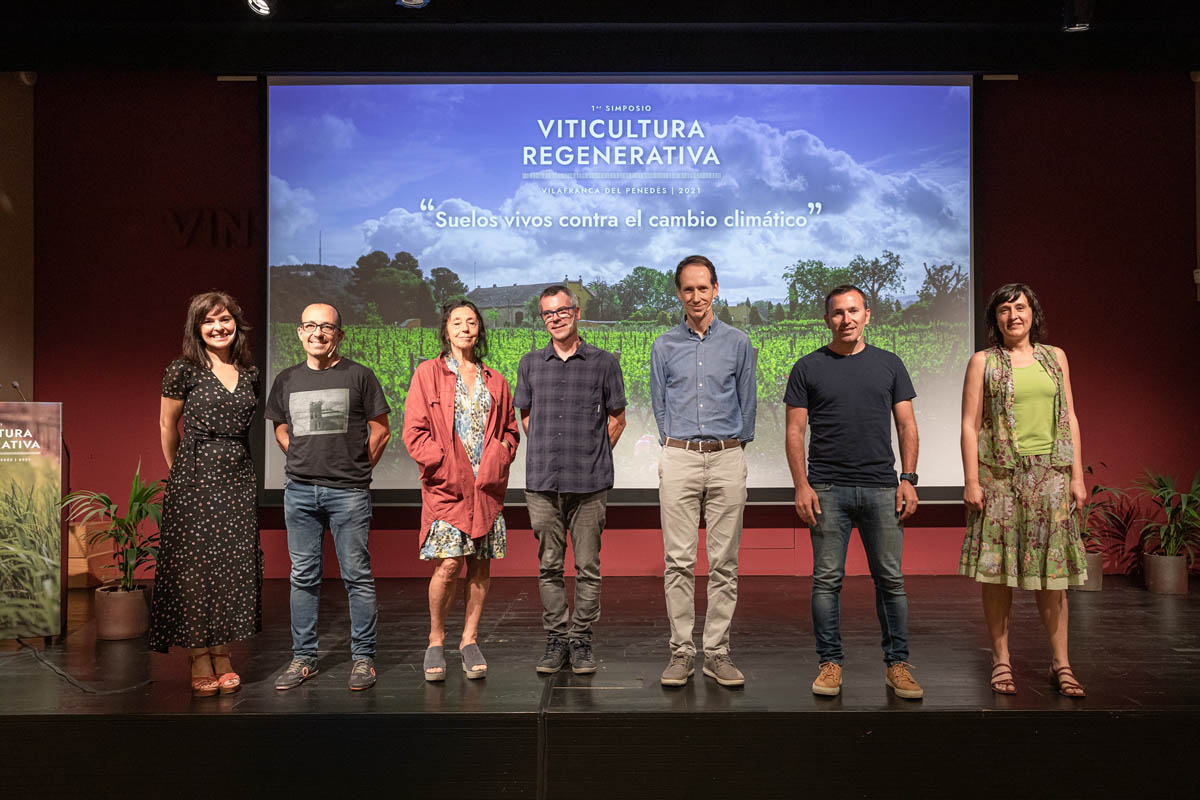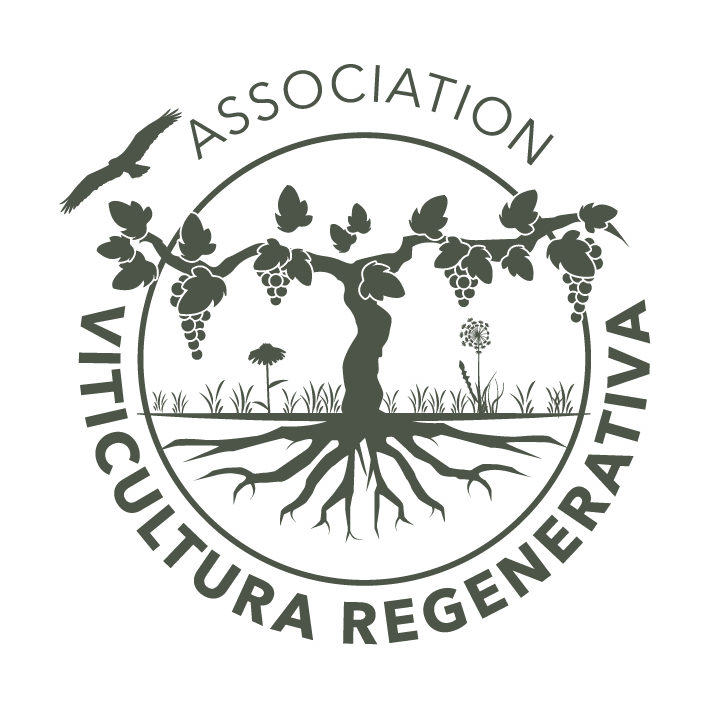Vilafranca del Penedès welcomes the 1st Regenerative Viticulture Conference
This past 17 June, Familia Torres organized the first Regenerative Viticulture Conference. The event took place at Vinseum, Museu de les Cultures del Vi de Catalunya (Catalonia's museum dedicated to wine culture), in Vilafranca del Penedès and coincided with the World Day to Combat Desertification and Drought. Under the heading “Living Soils to Combat Climate Change”, the live-streamed conference saw the participation of leading national and international experts with talks by some of the most important names in regenerative agriculture.
The primary objective of the conference was to explain what regenerative practices consist of and why they can considerably mitigate the effects of climate change. The mayor of Vilafranca del Penedès, Pere Regull, touched on this in his welcome address when he urged everyone to fight the climate crisis, “because if we don't, the consequences will be dire”.
The enormous advantages of regenerative farming were explained in a very instructive manner by the invited speakers: Allan Savory, an ecologist and driving force behind holistic management, president and founder of the Savory Institute; Darren J. Doherty, an Australian farmer, founder of Regrarians, and an international consultant and trainer in regenerative agriculture; James Sweetapple, winegrower, winemaker, and owner of Cargo Road Wines; Pilar Andrés, a researcher at CREAF (Centre for Ecological Research and Forestry Applications) and an expert in soil ecology and biodiversity; Francesc Font, farmer and agricultural engineer, director of Agroassessor Consultors Tècnics, and author of the book Arrelats a la terra: propostes per a una viticultura regenerativa; and Miguel Torres, fifth generation Familia Torres and managing director of the family-owned winery.
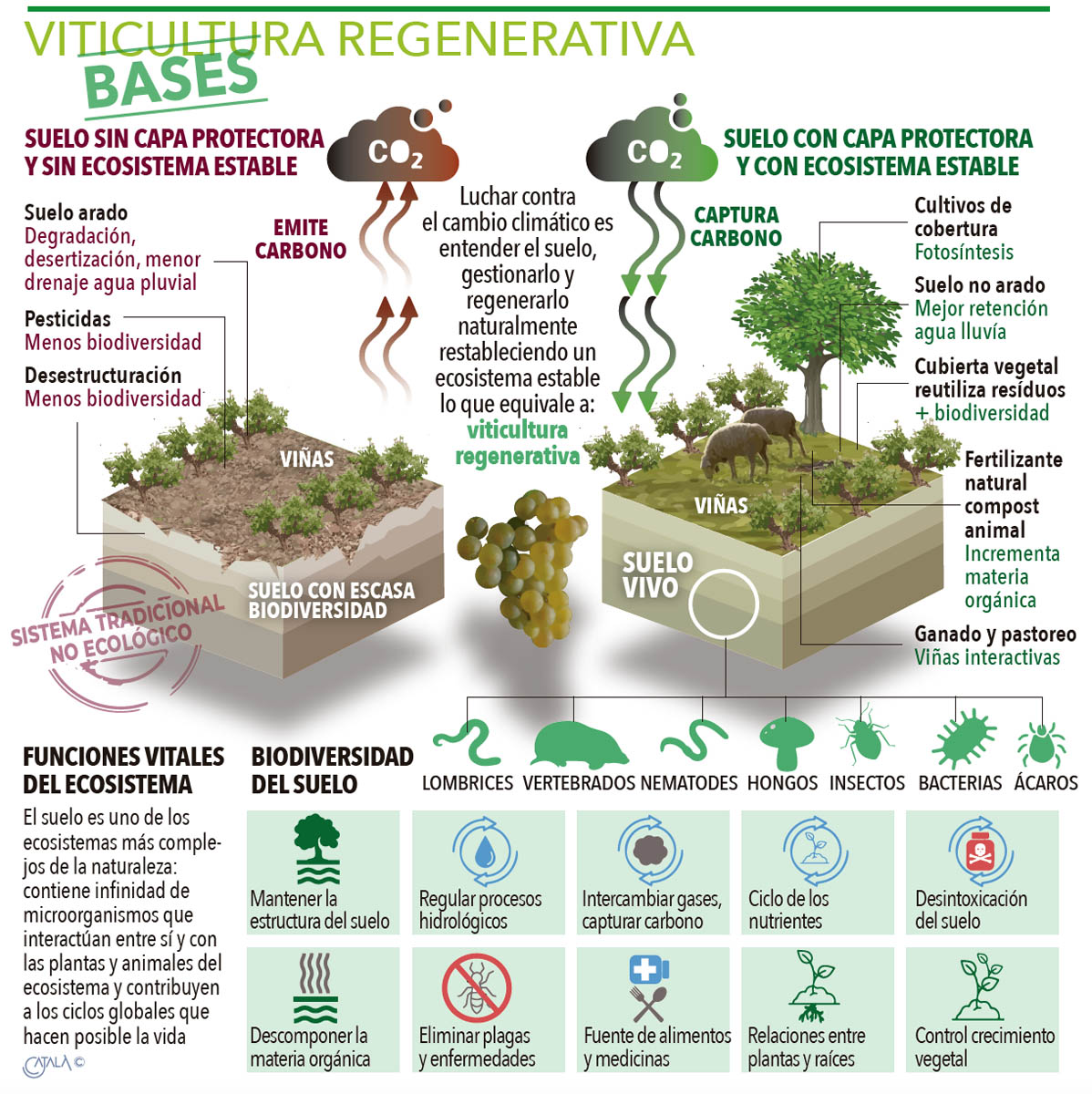
Everyone at the conference agreed unanimously that greater soil biodiversity – the life that exists within soils – results in a greater capacity to capture and store carbon dioxide and thus help prevent temperatures from rising further. At the same time, the accumulation of organic carbon in vineyard soils makes them healthier, increases their resilience to erosion and their ability to withstand drought, because they retain more water. This also encourages biodiversity, creating a balanced ecosystem that benefits the vineyard and the planet.
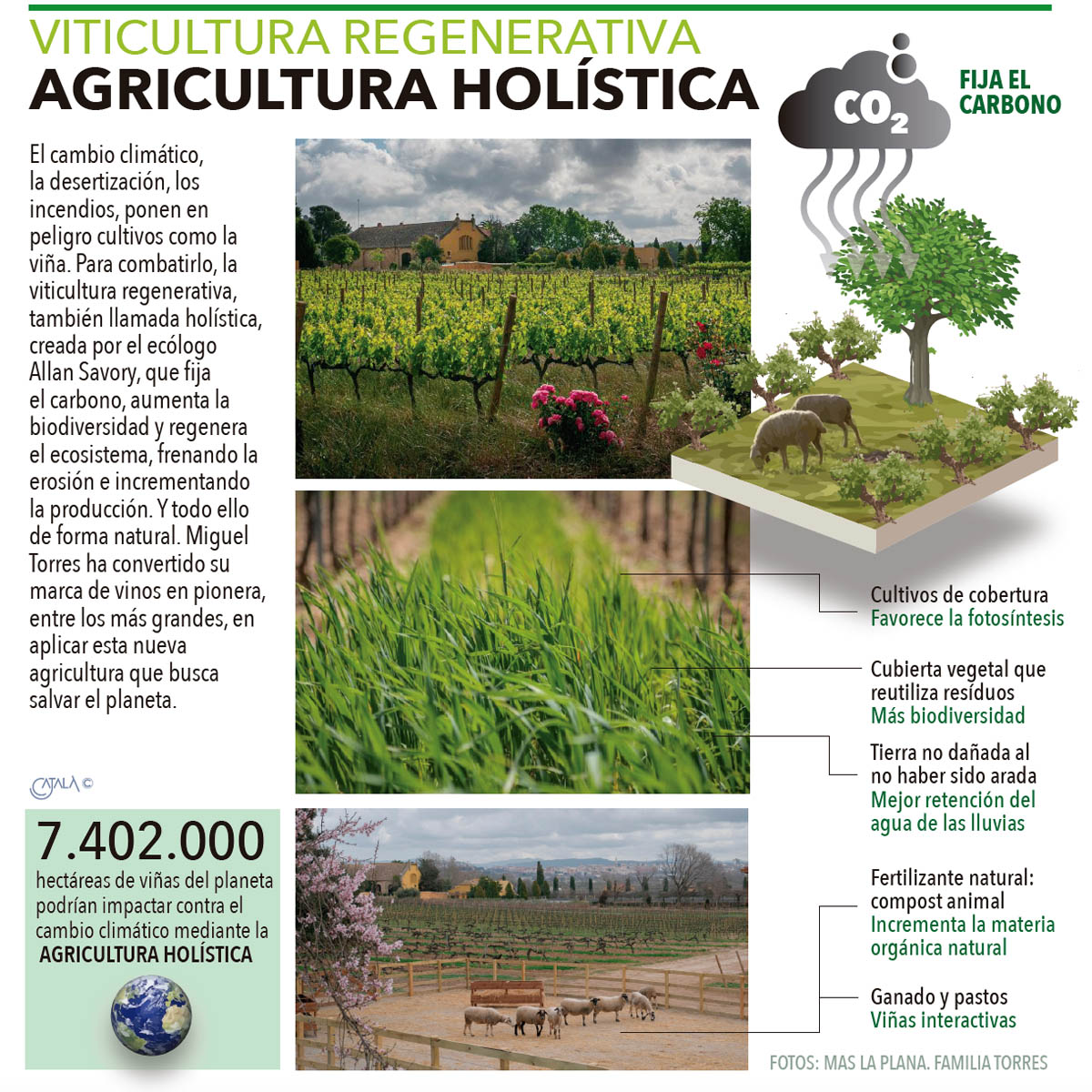
The conference participants called for a swift transition to this model, which has already shown great benefits, both in the fight against climate change and in delivering positive financial results. The importance of promoting this model was driven home by regenerative farming consultant Josep Ramon Sainz de la Mesa and Keyline design and holistic management expert Manel Badía during the final debate moderated by environmental journalist Cori Calero.
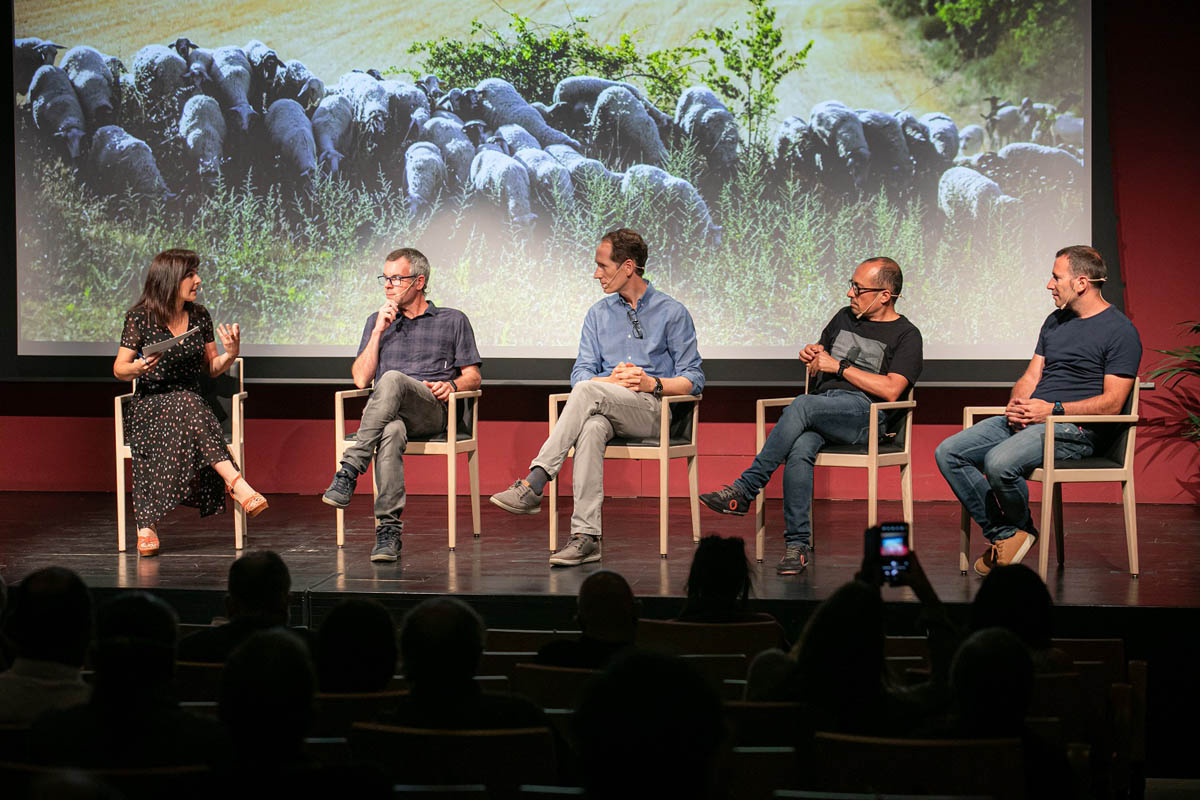
The managing director of Familia Torres and initiator of the conference announced that efforts were underway to create a regenerative viticulture association in conjunction with AgroAssesor and other wineries. The idea is “to share information and experiences and provide a meeting place for winegrowers and farmers who are working with a regenerative management model or are interested in doing so”. He went on to add that “by holding this conference, we want other winegrowers and winemakers to see the potential of this kind of viticulture, how it can turn vineyards into enormous carbon sinks and stop global warming. For us, it is the only kind of viticulture that makes sense in a climate change context”.
